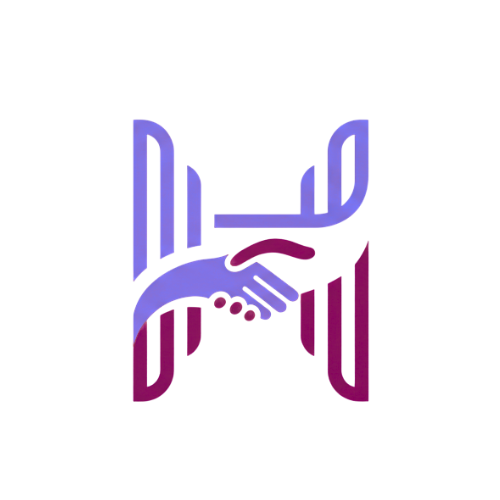Hamkke Chats with Excel || Life In Korea Will Give You Everything But Leave You Lonely
- byKemmieola
- 8 months ago
- 0 Comments
- 12mins

Meet Excel
Excel Nnamdi is a Nigerian living in South Korea for the past four years. She has a master's in Social Psychology and works in organizational development at a Korean company, where she researches and improves the social dynamics of the workplace. Outside of work, she loves going to church, connecting with friends, and soaking up the quiet moments at home. For her, living in Korea has been a journey of learning, adapting, and finding joy in both the little and big things.
In this edition of Hamkke Chats, Excel tells us what it's like to transition into life in South Korea. Read her story below;
What sparked your interest in the Korean culture and language?
I would say it was Korean dramas. I enjoyed the exaggerated story lines, exaggerated expressions... it was new to me back then; around 2009/2010. So that was what sparked my interest.
You live and work in Korea now, right?
Yeah.
What was the journey from plain interest to studying and then now working in South Korea?
I did my first degree in Nigeria, and then after graduating, I started preparing for my master's. I was applying to different places, and then I remembered that I had come across the Korean government scholarship, so I applied because it's a full scholarship that covers everything. I applied to that alongside all the regular programs in other countries, and there were a lot of disappointments, but in the second year, when I threw the net out in the ocean again, I got the current government scholarship. From 2021, I went through a three-year journey of studying the language, doing my master's in social psychology, before getting a job in the current company I work in now.
That's amazing.
Yeah, I wouldn't say I knew from the beginning that I would be where I am now, but I would just say that with each step, the next step became clearer, so it started with my master's, and after my master's, the next thing was what do we do next?
I didn't want to just come back home immediately, so I prepared for internships. My job now wasn't my first job; I was working at some other place for a couple of months before getting this job, so I think it was just a series of next steps. It was God's will in essence.
It's always so beautiful to look at the journey in retrospect.
Yes. Always.
From a resident's POV, what part of the Korean culture has really stood out to you the most?
As a resident, I don't think there's really anything that still interests me about Korean culture after being here for four years. I don't even watch Korean dramas as much anymore.
That's very ironic
Yes, it is. Instead, I would say that the experiences that I have come to love while living in Korea are safety and convenience. On safety I know that I can leave my house and take walks at 02:00 a.m. without thinking about anything, and I know that I will get home safely, like nothing is going to happen to me on the road like I could just be walking on the streets by 03:00 a.m. without fear or thoughts in my head.
And then on convenience, I know that I can be anywhere I want in the country. It's not a big country, but it's very diverse, like there's so much to experience in terms of landscape experiences, places to visit, that kind of thing I just know that if I have the money and the time, I could just find myself anywhere else.
Transport is also convenient, and since I'm on a resident visa, when applying for visas for other countries, I don't have to deal with the whole Nigerian passport thing - like I still deal with it, but it's cushioned to a certain extent.
Lastly is food delivery and all kinds of goods and services, I know that when I order something online, I will get it from 20 minutes to 24 hours like I'm talking food, I'm talking anything you're ordering they could come in as quick as 24 hours and they would literally leave it out outside your door you don't even need to be home, but it will be there waiting for you outside your door and no one takes it. This is what I've come to enjoy as a resident.
As a Nigerian in Nigeria, those are aspirations. It is such a fun thing to go somewhere and see a different reality.
Yeah.
How has life in Korea affected your life, your habits, and your general person?
I think living in Korea has really affected my habits; both eating habits and just my lifestyle generally.
I've become someone who likes taking walks, likes drinking coffee, someone who'll just sit in a cafe and be happy because the cake or the dessert is not too sweet. These are things that I think I have picked up from living in Korea because I still remember the first month or two I was in Korea, there was someone I met - a Korean couple, and this couple gave me an Americano. From his perspective, he was doing such a nice thing for us by buying us coffee I remember sipping that thing, and I was like, what is this? I was absolutely disgusted, but four years down the line, I'm actually walking into coffee shops and ordering that same thing I poured down the drain.
In Nigeria, walking was not a thing for me, like, why am I walking? The weather is too hot. What do you mean, let's take a walk? But here it's kind of a thing; you just go on a walk; you just find yourself walking for 30 - 45 minutes. There's this among foreigners where if you look at the distance somewhere and the map tells you it's 20 minutes, you know that in 15 minutes we can walk it. You start reducing the time the map tells you, just because you're so used to walking and familiar with it.
Have you experienced any difficulties navigating the language and culture barrier? And what are they?
I think the major difficulty I experienced since coming to Korea was during my master's, and it had to do with a relationship with my initial professor at the time. I was expecting that when you're in school, as long as you're a good student, you do what the professor says, you study well, and you have good scores, all should be fine. I was always the good student, the person that the teachers liked. So I had that image of who I was, and then because I like studying, I knew that I would do what I needed to do if I was in school, but coming here, it was kind of different. I don't know if that also had to do with my limited understanding of the language then, but it was hard to really understand what my professor wanted, and do what I needed to do to match what he wanted. There was a lot of miscommunication and confusion, and it was so bad that I ended up having to change my professor because this was taking so much toll on my mental health, I wasn't sure I was going to graduate.
Oh wow!
It was a difficult time. I asked myself a lot, why I came to this country and learned the language just to just take all of this. That was the most difficult thing I navigated in Korea. It could have just been that person uniquely as opposed to the country or the culture as a whole, but I know people who have had similar experiences while studying in Korea.
The second thing I would say has been a difficulty is understanding the 'Nunchi' culture in Korea. It's like this culture of "don't take everything people tell you at face value." For instance, if someone tells you "oh we should hang out together," they don't actually mean we should hang out together; if they mean that, they would have asked you like "let's meet on Saturday." If they're not in a schedule with you, they are just saying it out of courtesy. Nobody means what they're saying; people are just doing it so they don't come off as rude or unfriendly.
You need to pay more attention to the social dynamics.
Wow, that's a whole new school in itself. Given these experiences, what would you say is the best and worst thing about living in Korea?
Korea has given me so much up to now. It's given me a master's, a job, and a convenient lifestyle. But the worst would be living so far away from my best friends and family. I really envy other foreigners I meet here who are from other Asian countries, and their home is like a 6-hour flight away or a 300-dollar ticket away. If I'm thinking of Nigeria, I'm looking at a 20-hour flight, there's one transfer in between, and I'm looking at about 2,000 USD on a ticket.
And I think what makes it worse is it hasn't really been easy to really form strong relationships or even friendships with other people here, so when you live here as a foreigner, your close friends tend to also be foreigners like you and the thing with foreigners is since we're foreigners, we're not here long-term so it's always changing. Even if your friends who are foreigners are still here, they could also get very busy with life, so it kind of gets lonely a lot of times.
So if you were to compare, what's life in Korea versus life in Nigeria?
I think they're definitely vastly different. Life in Korea makes you get used to things that are convenient. Like, if I wanted to find some information, it's always readily available. On the other hand, in Nigeria, information had a lot to do with knowing someone, or there were just times when roadblocks would just rise up out of nowhere. In Korea, if something is not gonna happen, it's probably because you didn't find the right information or you're going to the wrong place, while in Nigeria, you could have the right information, but you just don't know someone or you don't have the money.
The other thing that's vastly different is your prospects for your dating life. In Nigeria, I was getting advances every other day; I just needed to be in church on Sunday or something, but Korea will give you every other thing at the cost of an active dating life.
This is so relatable. I've had people advise me to get a man first before migrating.
I definitely agree.
Generally, are there any interesting or surprising things that you learned about Korea recently from an inside POV?
In Korean movies, I've always seen that company dinner where the team members and everybody come together for hweshik. So about 3 weeks after joining my company, I had my first official hweshik and I remember being shocked because it's just like the movies. Someone is pouring alcohol in a cup, someone is telling you who someone is; it's mind-blowing. Usually in the office, most people are unassuming, they're just focused on their work, but the hweshik is that place where people would take off their masks and just be very relaxed. I'm used to people being the same most times. Like in Nigeria, the person at work who is always loud and chatty will still be loud and chatty when you're out, and the person who's somewhat calm will still be calm. So people's vibes usually just apply the same everywhere, except in extreme cases of drunkenness or something else.
What advice would you give to anyone who wants to live and work in Korea like you?
Asides the advice of coming with your partner in the beginning?
Laughter break
I always say this to people that I recommend 100% Korea as a vacation destination. It's how the first taste of something is sweet, but you need it in small quantities and at intervals to maintain that experience. But when you start eating it on a long-term basis, the sweetness drops. However, if you're like, give me more! Then I will definitely recommend Korea in terms of education. I would recommend it if you're someone who would like to travel a lot conveniently, who has an active social life, likes concerts, and is into K-pop or K-drama. There would be a lot of opportunities, maybe festivals, so if you're someone who wants that kind of experience, then definitely you can.
Then, on studying here, there are schools with really good quality education in Korea, most of which are in Seoul. But then, if the quality of education is not your main interest, then, of course, any school is fine. Be prepared to encounter a different kind of education system, one that could be competitive, especially for those who do a bachelor's degree. Most people who work here from Nigeria schooled here, so working here is possible if you're good at Korean and you have a degree here. It's easy to get your foot into the job market, and then when you do so, you will definitely enjoy the benefits that come with that kind of peace of mind.
This was a very fun chat. Thank you so much for your great advice and for sharing your story with us.
Yeah, thank you for having me.
Hamkke Chats is an interview series that highlights the voices and stories of Korean culture enthusiasts from all walks of life. Whether you're learning the language, watching dramas, or building bridges across cultures, we want to hear your experience.
If you'd like to be featured, simply click here to fill out an interest form. We’d love to chat with you!
Tags:
Kemmieola
Storyteller, creative, aesthete, currently navigating the throes of an immense dependence on Kdramas for equilibrium.
0 Comment(s)
Related Posts
Daily Newsletter
Get all the top stories from Blogs to keep track.





Leave a comment